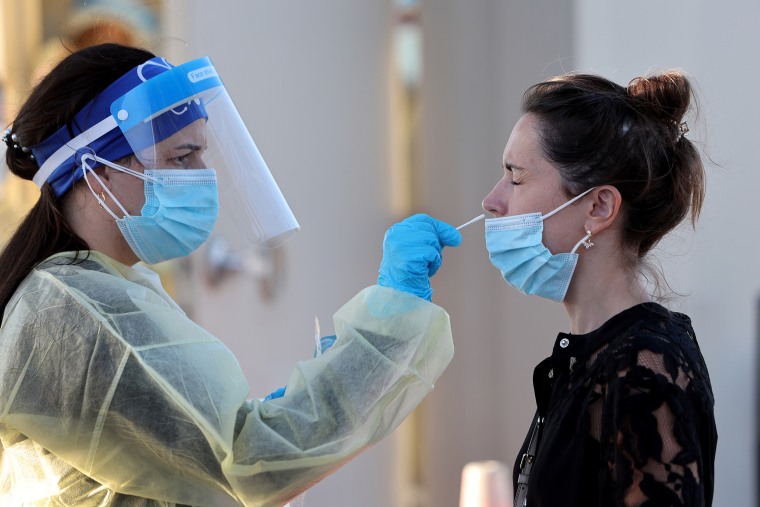While images of ICUs filled with Covid patients struggling to breathe may remain a haunting image of the early pandemic years, the public health emergency is coming to a close.
Not only did the World Health Organization declare Friday that Covid is no longer a global threat, the United States is set to wind down public health emergency protections on May 11.
As part of the end of the public health emergency in the U.S., the Centers for Disease Control and Prevention will stop tracking levels of Covid spreading in communities around the country. The new focus will rely mostly on hospitalizations, according to two CDC reports released Friday.
The change in how the CDC reports Covid data comes as "99 plus percent of the population is in a low community level," Dr. Brendan Jackson, head of the CDC's Covid-19 Response, said during a media briefing Thursday.
The agency will cease using a color-coded system that's been in place on its Covid Data Tracker since February 2022. The system indicates high, medium or low transmission of Covid, county by county.
As most people use rapid, at-home Covid tests which don't get reported to states or the CDC, it has become difficult to get an accurate view of how much virus is causing mild infections. When the public health emergency ends on May 11, jurisdictions around the country will no longer be required to report testing data to the CDC.
"Without those testing data, that Covid community level map will shift to a map that's really driven by our data around hospital admissions," Dr. Nirav Shah, the CDC's principal deputy director, told NBC News.
While the public health emergency is winding down, there are still more than 1,000 people dying of Covid in the U.S. each week and almost 9,000 Covid patients in the hospital, according to CDC data.
It is hospitalization information that matters most to public health officials. This indicates when a virus has evolved to a point when the most vulnerable in a population are becoming sicker and need more robust care.
Moving forward, hospitalized Covid patients will be the main indicator of trends, the reports' authors wrote. This includes visits to emergency departments that result in Covid diagnoses.
"Functionally, that's all we've been really looking at for quite some time," said Dr. Cameron Wolfe, an infectious disease expert and an associate professor of medicine at the Duke University School of Medicine. The CDC's new tracking, Wolfe said, "is the right thing to do."
In 2020, "our goal was to count every snowflake," Shah said, referring to each case of Covid. Three years later, "we don't need to be out there counting every snowflake. We can just take a ruler out and understand how much snow has fallen."
Covid-related deaths will also be calculated, based on death certificate data. And PCR testing from about 450 laboratories across the country will be taken into consideration for tracking — searching for any blips or early rises in activity.
Because the Covid virus continues to evolve, the CDC will keep tracking wastewater samples covering 40% of the population.
"This gives us an early look at what might be coming down the pike," including potential new variants, Shah said. "When you take these metrics all together, our insight into what's happening with Covid doesn't really change."
Most Americans won't notice the change in daily lives.
"For a lot of folks out there, these changes to the data won't affect the ways that they go about their day to day lives, or the decisions that they make" in mitigating further spread of the virus, Shah said.
Even in areas with low levels of spread, the CDC recommends staying up to date with Covid vaccinations. The agency recently signed off on a second round of booster shots for people ages 65 and older.
Whether it's Covid or any other virus, infectious disease experts maintain diligence in stopping the spread.
"The most important thing from a public health standpoint is about infection control," said Dr. Sadiya Khan, an epidemiologist at Northwestern Medicine. "Those are things like washing our hands, making sure that people who are having symptoms like fevers and coughs and are actively ill are quarantining in their home and not out in public."
According to the CDC's tracker, the average number of weekly cases has been falling steadily since early January. As of May 3, the weekly average was 77,294 cases.
Shah issued a stark reminder: Covid is still among us.
"Even though the public health emergency may be coming to a close," he said, "CDC's work around Covid-19 hasn't come to an end."
Follow NBC HEALTH on Twitter & Facebook.

